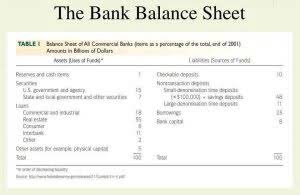
Running a successful gym business requires more than just providing top-notch fitness services. It also involves effective financial management to ensure profitability and growth. Bookkeeping plays a crucial role in this aspect, bookkeeping for cleaning business as it helps gym owners track revenue, manage expenses, and make informed financial decisions.
Services we offer with Fitness Taxes & Asnani CPA Tax and Accounting:

Here are some gym bookkeeping tips that offer you a practical insight into how to manage gym books effectively. bookkeeping for personal trainers If you want, as a gym owner, your gym to witness success with financial growth, you have to ensure proper financial management of your gym. But you might have a question in your mind about how you will be able to manage your gym finances and what tips you should follow.
Why Promotional Bucket Hats Are a Marketing Must-Have

When leveraged correctly, bonuses can be a win-win for both your gym and staff. Unify your business back office with doola—an all-in-one platform that handles LLC Formation, Bookkeeping, Taxes, and E-commerce Analytics. By choosing doola, you can focus on what you do best—growing your business—while leaving bookkeeping to the experts. Quarterly taxes, annual returns, VAT/GST submissions — ensure you know when everything is due. Well, that’s exactly what running your business without financial projections is like. You don’t want to think you’re swimming in cash when half of it belongs to creditors.
- When your financial data is all over the place, you might miss out on opportunities to expand or improve your business because you don’t have the correct information at your fingertips.
- It is suggested to shift to the newest technologies for your bookkeeping tasks these days to minimize the mistakes.
- As a fitness entrepreneur—whether you run a bustling gym, a boutique yoga studio, or you’re a personal trainer juggling multiple clients—staying on top of your finances can be challenging.
- In this guide, we’ll break down the essentials of bookkeeping for fitness businesses, highlight common pitfalls, and show you how professional support can make all the difference.
- This serves as a roadmap for financial decision-making and allows for better cost control.
- Every second and penny counts, and finding efficient ways to manage operational tasks can be a game-changer for a startup.
- Less Accounting offers a complete bookkeeping service that helps you manage your gym bookkeeping and finances anytime, anywhere.
Streamline your expense management process

Tracking and analyzing key performance indicators (KPIs) is crucial for evaluating the performance of your gym and identifying areas for improvement. By monitoring these metrics, you can make data-driven decisions to optimize operations and enhance member satisfaction. A well-managed gym not only ensures a safe and clean environment but also delivers exceptional customer service. It sets the stage for achieving your gym’s objectives and fosters a positive reputation in the community. Effective management is the foundation that allows your gym to thrive amidst stiff competition.

Tracking gym equipment purchases, depreciation, maintenance costs, etc.
It can also give you the advantage of more accurate cash flow management and establish stronger credibility and professionalism with your business. Recognizing and allocating revenue based on different membership types or packages is crucial in ensuring accurate financial reporting in gym accounting. Gym memberships may vary in terms of duration (monthly, quarterly, annual) and level of access (basic, premium).

This comprehensive inventory ensures accurate tracking of assets and facilitates efficient maintenance scheduling. Gym management software or time clock systems can be leveraged to streamline this process, facilitating reliable data collection. On the other hand, salary-based payments are commonly employed for employees with fixed working hours or positions that require a consistent level of responsibility, such as managers or administrative staff. To ensure financial stability and profitability, gyms must implement effective budgeting techniques. Start by creating a comprehensive budget that includes all anticipated expenses and recording transactions revenue projections for the upcoming period. Deferred revenue occurs when a gym receives payment for services that have not yet been rendered or membership periods that extend beyond the current accounting period.










